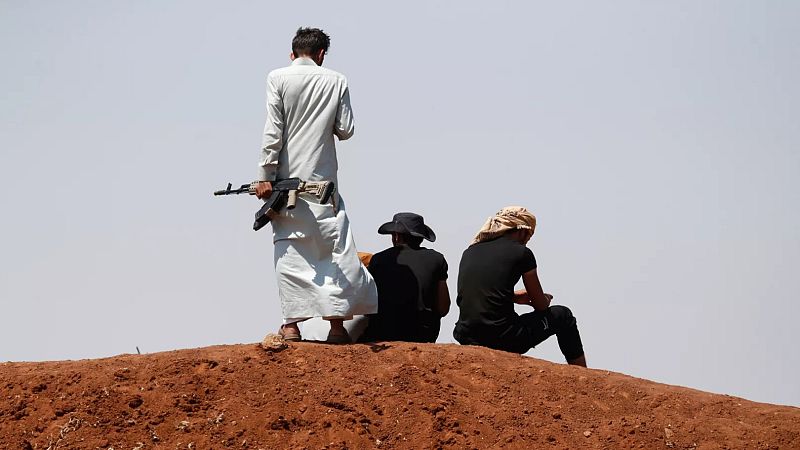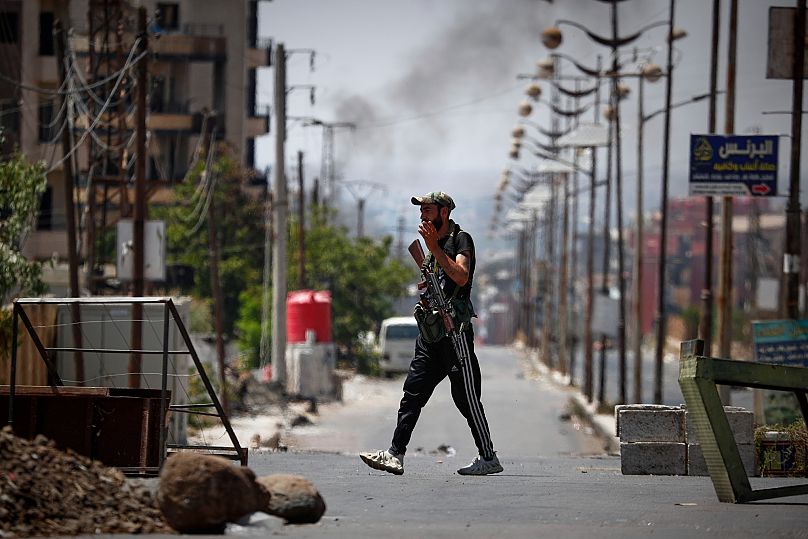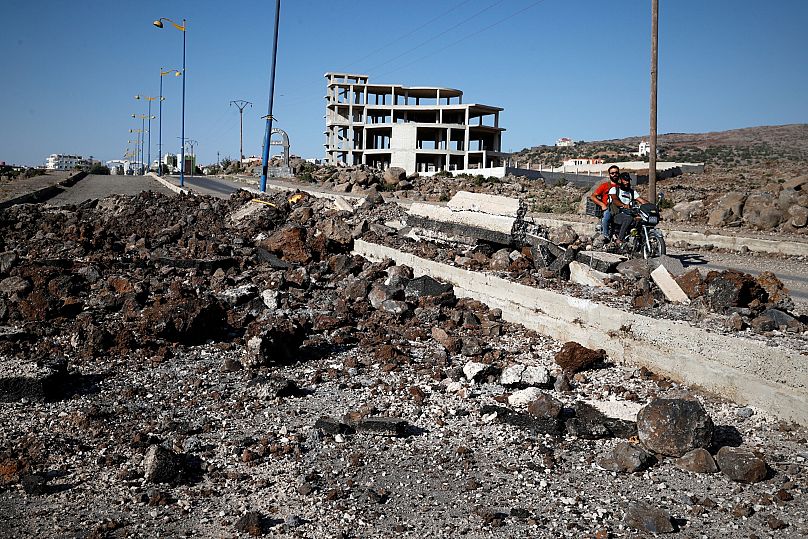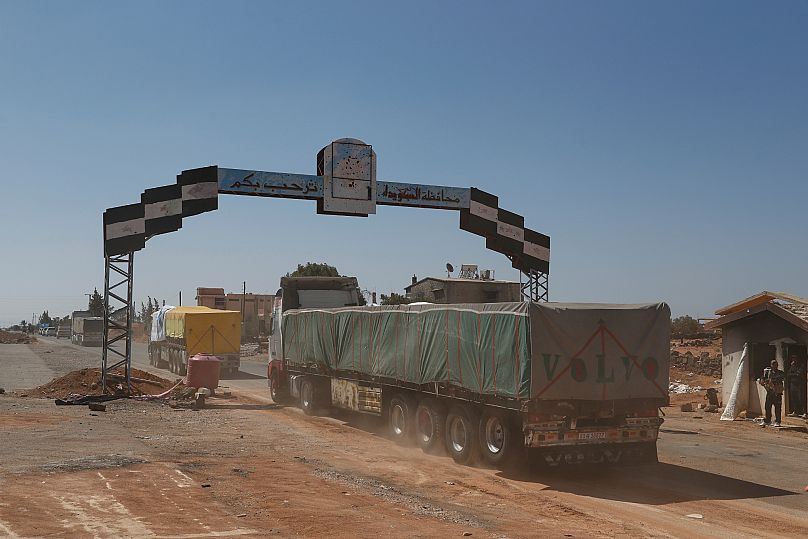Suwayda violence: Head of Israel's Druze calls on Europe to act and defends Israeli strikes

The leader of the Druze community in Israel, Sheikh Muwafaq Tarif, visited Brussels on Tuesday where he met with the President of the European Parliament, Roberta Metsola, and several other European officials to discuss recent clashes in Suwayda.
"We came to raise our voices and those of our people in Syria, in Jabal al-Arab, Jabal al-Druze. This was necessary given the situation that has developed there, and the events and massacres that have taken place," he told Euronews in an interview.
Syria has experienced a wave of violence between the Druze and Bedouins since July, leaving thousands dead or injured.
The clashes began with tit-for-tat kidnappings and attacks between members of local Sunni Bedouins and Druze armed factions in Suwayda, a hub of the Druze community in the south of the country.
That violence threatened to derail a fragile security situation after rebels ousted former President Bashar al-Assad in a lightning offensive in December, effectively ending more than 14 years of devastating civil war.
"It has become clear that the whole world, including the European Union and America, must act. We demand the return of those kidnapped as soon as possible. They must return the displaced to their homes and villages, restore normal life and bring humanitarian aid to our people in Suwayda."
There have also been cases of looting, robbery, rape and forced displacement of tens of thousands of people.
Alawites loyal to al-Assad, who belongs to the same ethnoreligious group, were the first community to suffer as part of the violence.
Christians, and more recently Druze, whose religion is an offshoot of Shia Islam, have also been targeted.
In a report issued last month, the UN Commission on Syria stated that "the violence that took place on the coast in March was systematic and widespread" and that it "may amount to war crimes."
According to the independent war monitor, the Syrian Observatory for Human Rights, 2,000 Druze were killed in clashes with Sunni Bedouin tribes backed by forces loyal to interim president Ahmad al-Sharaa.
In mid-August, the UN Security Council unanimously issued a statement condemning the atrocities and acts of violence against civilians.
"The Syrian Interim Authority must ensure that all perpetrators of violence are held accountable and brought to justice, regardless of their affiliations. The Council also noted the decision of the Ministry of Defence of the Syrian Interim Government to establish a commission to verify the affiliations and backgrounds of individuals involved in acts of violence. The Council stressed the importance of inclusiveness and transparency in the justice and reconciliation processes, emphasising their urgent necessity for the establishment of sustainable peace in Syria," a statement read.
Sheikh Muwafaq Tarif listed the violations that have occurred in Syria against several communities, noting that the situation remains tense.
"There were attacks on the Alawites and large-scale massacres, followed by attacks on our Christian brothers. Then came the attacks and massacres in Suwayda and its suburbs. Killing, rape, looting, pillaging and theft. More than 230,000 people have been displaced from their villages. Today, there is a siege. A major siege of Suwayda. There is no electricity. There is no water. There is no medicine. There is no milk for the children," he said.
Amid this atmosphere and the deteriorating security situation and growing sectarian tensions, Israel then launched strikes on government convoys in Suwayda and on the Defence Ministry headquarters in Damascus, saying it was acting to protect the Druze.
Tarif defended the strikes. "We do not represent the Israeli government. We came here for the sake of the Druze community," he said.
Tarif concluded that "if there had been no Israeli intervention, the Druze community in Suwayda would have been wiped out."
In Israel, there are an estimated 150,000 Druze, most of whom have Israeli citizenship and serve in the Israeli army. Some have reached senior military and political positions and are often presented as an example of coexistence and tolerance within the Jewish state.
Today




